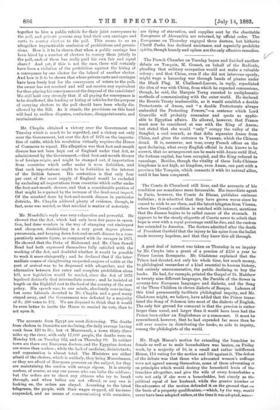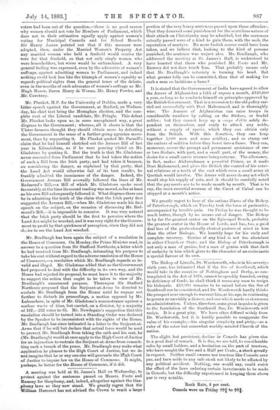Mr. Hugh Mason's motion for extending the franchise to female
as well as to male householders was beaten, on Friday week, by a majority of 16, in a small and rather indifferent House, 114 voting for the motion and 130 against it. The defeot of the debate was that those who advocated women's suffrage were not agreed among themselves, some of them advocating it on principles which would destroy the household basis of the franchise altogether, and give the wife of every householder a vote not only if she were a householder, but simply as the political equal of her husband, while the greater number of the advocates of the motion defended it on the ground that no the basis of a property qualification,—which, by the way, would never have been adopted unless, at the time it was adopted, worn e voters had been out of the question,—there is no good reason why women should not vote for Members of Parliament, which does not in their estimation equally apply against women's voting for Municipal Councils and for School Boards. Sir Henry James pointed out that if this measure were :adopted, then, under the Married Women's Property Act any married woman who held a freehold would receive the -vote for that freehold, so that not only single women who were householders, but wives would be enfranchised. A very general feeling was expressed, even by the advocates of women's suffrage, against admitting women to Parliament, and indeed nothing could look less like the triumph of women's equality as regards political rights than the general tenor of the debate, oven in the months of such advocates of women's suffrage as Mr. Hugh Mason, Baron Henry de Worms, Mr. Henry Fowler, and _Mr. Courtney.



































 Previous page
Previous page